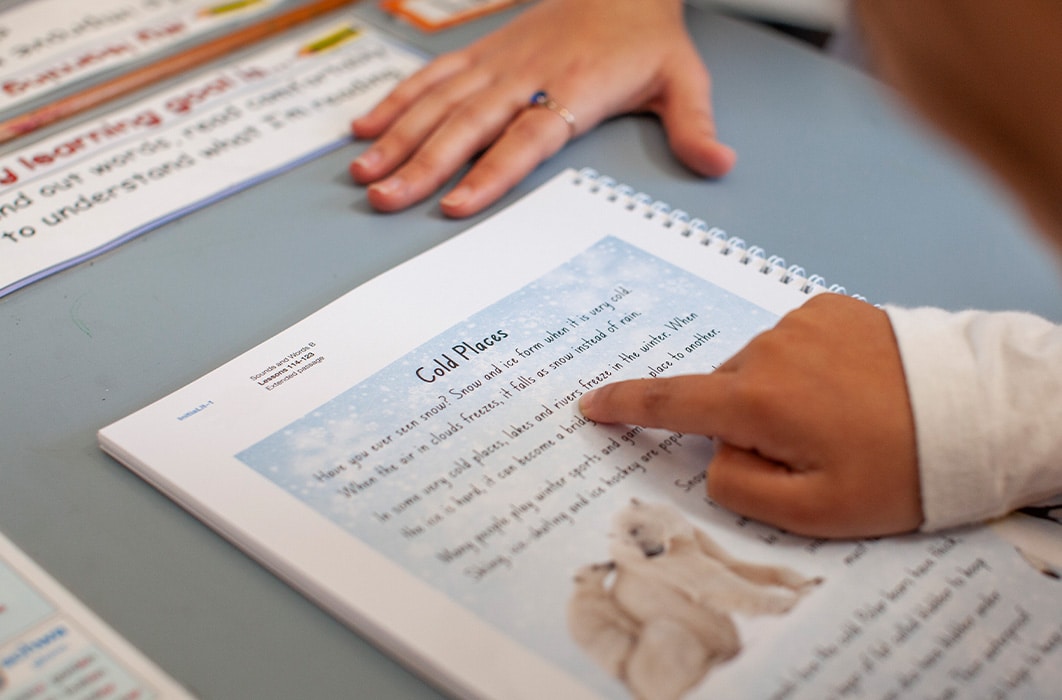East Para Primary School in South Australia has been running InitiaLit – a whole-class literacy instruction program – since 2018 and has seen great results.
It is well-known among educators that strong foundational literacy skills are essential to educational success throughout primary and high school and can open the door to opportunity later in life.
It is with this in mind that MultiLit developed a program to provide teachers with the early literacy tools to establish strong foundations in reading and writing in their students from the outset.

InitiaLit is an evidence-based whole-class literacy program providing essential core knowledge in the hope that fewer children will require intensive intervention later in their schooling.
Since the release of InitiaLit in 2017, MultiLit has developed strong partnerships with the schools using the program, allowing educators to ensure they are getting the most out of the materials and MultiLit to receive important feedback to improve future editions of the program.
East Para Primary School in South Australia has been running InitiaLit since 2018 and has seen impressive results. Gaynor Furnell, the InitiaLit coordinator at the school, offers some great insight into the program’s success for the East Para school community.
What made you choose InitiaLit–Foundation (InitiaLit–F) as an early literacy program at East Para?
Gaynor: When we realised a low number of our students weren’t reaching the benchmark on our Phonics Screening Check, we began to look for a research-based program that gave us more consistency across our junior primary classes.
After only six months of InitiaLit in 2018, the number of our students reaching that benchmark increased from 22% to 54%. That figure went up to 68% in 2020 and 76% in 2021.
What made you want to continue to grow the program at your school?
Gaynor: Continuing to grow the program with InitiaLit–1 and –2 was a natural progression. We had seen the benefits of the program but also needed it to continue throughout junior primary to ensure the students had the skills to be successful readers and writers. Our Phonics Screening Check data had improved, as had our reading. The students were engaged, and it was consistent for them when moving classrooms at the end of the year.
How important would you say it is for children to learn foundational literacy skills in junior primary school?
Gaynor: It is vital to have the basic skills to then be successful. If they do not have the foundations, then they cannot progress in all curriculum areas. This program shows any cracks in their literacy foundations through testing and gives us the tools to guide improvement.
What benefits have you seen from the program since introducing it?
Gaynor: There has been a growth in both student literacy and in the implementation of the program by teachers and staff. Among teachers, there is more continuity in the language used, and we can discuss this easily with our admin staff and each other.
In the students, we have seen improved data each year, from the screeners to progress monitoring to the cumulative assessments.
Are the students eager to engage with the program?
Gaynor: Most students engage well with the program — they like the consistency and they are excited to see what comes next. “Oh, are we meeting a new sound tomorrow?” and “What are the next tricky words we will learn?” are questions I am often asked when working with my class of Reception [Foundation] students.
An early career teacher at our school commented that it is so well explained that she is more engaged with it, and this then transfers to her students. Students enjoy the variety of activities, movement, and predictability of the structure of the lessons.
It is vital to have the basic skills to then be successful. If they do not have the foundations, then they cannot progress in all curriculum areas. This program shows any cracks in their literacy foundations through testing and gives us the tools to guide improvement.
Gaynor Furnell
What are your favourite aspects of InitiaLit?
Gaynor: From a teacher’s perspective, the structure of the program is so well thought-out; there are ongoing reviews, and each aspect builds on what has come before it. The students can be successful from an early stage.
All the program’s materials work together, and the progressive and cumulative reviews allow us to better approach small group work to review sounds as needed.
Now that we have been running InitiaLit for a few years, we can compare data and better adjust our teaching to the benefit of our students.
And what about from the students’ perspective?
Gaynor: My Reception children told me, “I like all the sounds” and “I want to learn them all”, and a Year 2 student said, “I like writing the sentences and learning new sounds”.
What would you say to other schools who are interested but might be hesitant about InitiaLit?
Gaynor: Give it a go!
Like anything new, it is a bit daunting to begin with, but the results and the progress students make are worth it.
Read all about the InitiaLit program here, or contact us for a digital InitiaLit sample pack.